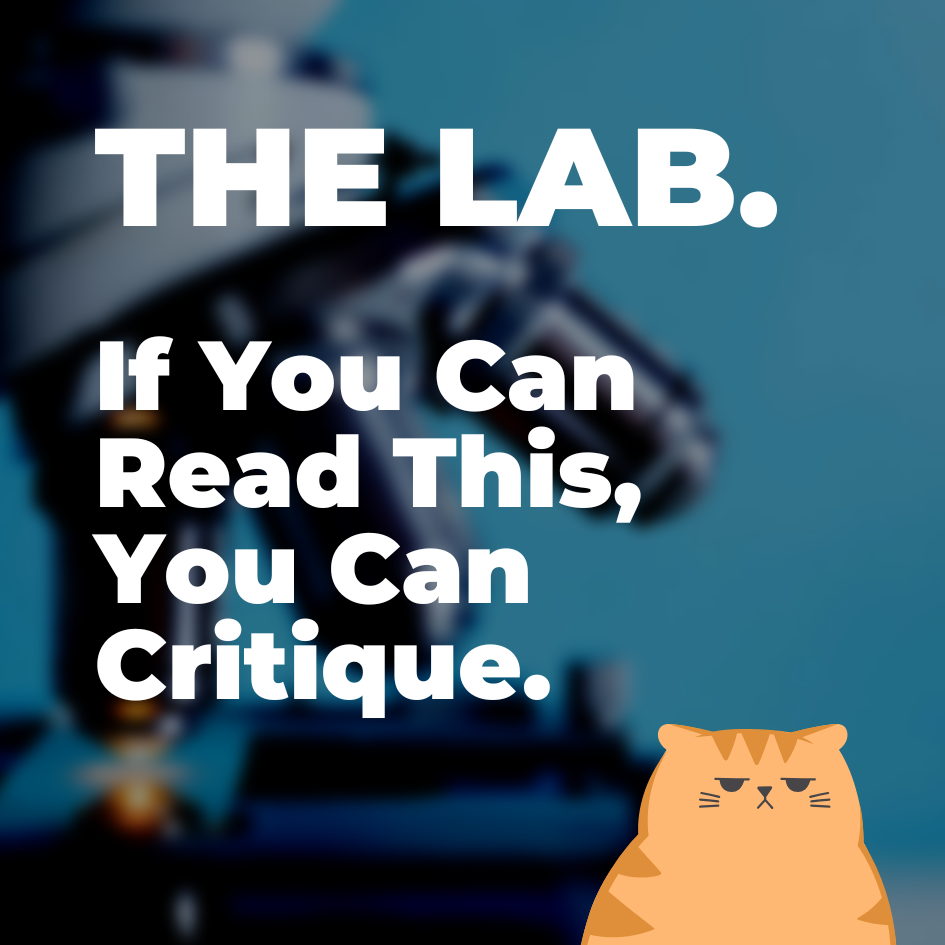Click for more details
Navigation
Install the app
How to install the app on iOS
Follow along with the video below to see how to install our site as a web app on your home screen.
Note: This feature may not be available in some browsers.
More options
Style variation
-
Café Life is the Colony's main hangout, watering hole and meeting point.
This is a place where you'll meet and make writing friends, and indulge in stratospherically-elevated wit or barometrically low humour.
Some Colonists pop in religiously every day before or after work. Others we see here less regularly, but all are equally welcome. Two important grounds rules…
- Don't give offence
- Don't take offence
We now allow political discussion, but strongly suggest it takes place in the Steam Room, which is a private sub-forum within Café Life. It’s only accessible to Full Members.
You can dismiss this notice by clicking the "x" box
You are using an out of date browser. It may not display this or other websites correctly.
You should upgrade or use an alternative browser.
You should upgrade or use an alternative browser.
US Magazine 'Carve': open for short fiction and poems
- Thread starter Katie-Ellen
- Start date
Invest in You. Get Full Membership now.
- Status
- Not open for further replies.
D
David Steele
Guest
Not old news to me! Thank you.
I've added this one to my list of "Places to send stories when I've actually written some"
I've added this one to my list of "Places to send stories when I've actually written some"
James Marinero
Basic
Is 'first publication rights' the norm? This area is all new to me.
A
Amber Zade
Guest
Thanks!!
Invest in You. Get Full Membership now.
My impression is that, for magazines, yes it is. Usually all other rights revert to the author immediately after publication. Some require exclusivity for a period of time after first publication, usually 3 or 6 months, with all rights reverting thereafter. Of course, first publication rights can't revert, coz they have already gone.Is 'first publication rights' the norm? This area is all new to me.
M
Meerkat
Guest
Hmm, I might actually have a story they'd like.
You need to pay to submit to this one. Not much, I know, but it's a red line for me. I don't pay to sub, on principle.
I have noticed there are different attitudes to this between different cultures? British seem to be less inclined to pay than Americans.
J
Jason Byrne
Guest
I would really like to hear what @AgentPete has to say regarding this.I have noticed there are different attitudes to this between different cultures? British seem to be less inclined to pay than Americans.
Before the benefit of expert opinion, and as a duly-appointed representative of America, I would not pay anyone for the opportunity at a 99% chance of rejection. That's why I've very seldom gambled. Or gone to the bar looking for love. I would be overjoyed to pay you after you've accepted my manuscript, and to be honest I don't particularly care how much. I would operate at a loss to be published. But I don't like the idea of throwing money at odds that slim.
Invest in You. Get Full Membership now.
I would really like to hear what @AgentPete has to say regarding this.
Before the benefit of expert opinion, and as a duly-appointed representative of America, I would not pay anyone for the opportunity at a 99% chance of rejection. That's why I've very seldom gambled. Or gone to the bar looking for love. I would be overjoyed to pay you after you've accepted my manuscript, and to be honest I don't particularly care how much. I would operate at a loss to be published. But I don't like the idea of throwing money at odds that slim.
Interesting perspective as before I took @Meerkat from here and some general attitude on facebook as my yardstick. I still see more good old british reservation myself included. But of course everyone colours their opinion with their own experiences.
J
Jason Byrne
Guest
Oh — I see:
One of the magazines I submit to all the time requires an entry fee for its competitions. The reason is so that the editors can pay the winner $1500.
I can appreciate such a concept, fair enough, if the fee accumulates into the prize then it's worth it but i have seen some that take a fee but give no cash prize.
It's like charging an entry fee to a nightclub, pure profit for the company lol
See... I would have a hard time even doing what's described here. How many submissions did that one competition have, that had been talked about in the Colony a while back? Like Four thousand, or something like that? That's a 0.025% chance of winning.Agreed.
Ooh! Han Solo meme time!

See... I would have a hard time even doing what's described here. How many submissions did that one competition have, that had been talked about in the Colony a while back? Like Four thousand, or something like that? That's a 0.025% chance of winning.
I won awards by default because not many had entered and they needed to 'give it away'
A lot of my projects came to life because of this mentality of giving it a go.
My success ratio was 1:9. I would win 1 in every 9 attempts.
Things are getting harder now but we have to be more innovative too with new and unusual ideas for stories/projects.
J
Jason Byrne
Guest
"You can't succeed unless you try." I know. It's true!
But, with so many options and long odds, is it worthwhile to pay at that stage of the process, is what I'm wondering.
But, with so many options and long odds, is it worthwhile to pay at that stage of the process, is what I'm wondering.
Invest in You. Get Full Membership now.
Richard Sutton
Flash Club Supremo
Hey, I can go $3. Right now, that is... maybe not next week...
I had a grisly, 3K word short I figured they might enjoy, so I submitted it.
I had a grisly, 3K word short I figured they might enjoy, so I submitted it.
J
Jason Byrne
Guest
Is it only $3? Never mind! That's a scratch-off lottery ticket — I have done that, a handful of times! Won $50, once. Neither here nor there.Hey, I can go $3. Right now, that is... maybe not next week...
I had a grisly, 3K word short I figured they might enjoy, so I submitted it.
"You can't succeed unless you try." I know. It's true!
But, with so many options and long odds, is it worthwhile to pay at that stage of the process, is what I'm wondering.
For me time is more precious than money. Though they are equally important in many or all cases.
Everything is a gamble of sorts..how calculated a risk is the reason we edit. What are the odds of making a great return on our book investment? (time wise)
If a competition is worth the price of a coffee I don't think I would bother cost it up. The fun of entering is always worth it.
Hey, I can go $3. Right now, that is... maybe not next week...
I had a grisly, 3K word short I figured they might enjoy, so I submitted it.
Good luck with that.
If a competition is worth the price of a coffee I don't think I would bother cost it up. The fun of entering is always worth it.
Fun? Not for me. I think we have about the same chances of winning a prize as we do of getting our pieces published, and that's not fun. Paying to submit, with such long odds, seems to me like just throwing money away. And I know it's not much money, but if you enter a lot of competitions, it will add up. And anyway, it is the principle of the thing; writers get a hard enough time as it is, and I dislike the idea of having to pay for said hard time. It's not right, and I won't support it.
Invest in You. Get Full Membership now.
I would really like to hear what @AgentPete has to say regarding this.
Frankly, I’ve never heard of any magazine, UK or US, asking for potential contributors to pay for the privilege of being read.
They’re doing what - until quite recently - would have been considered by many prima facie evidence of literary dodginess – charging for submissions, and also running an editorial consultancy. Until recently, that would have been enough to be labelled a vanity press.
However, today this doesn’t mean that the operation is a scam. The whole industry is experimenting with new financial and business models now.
It’s easy to cry “Scam!” – and quite a few bloggers have established some personal visibility in the writing community by doing precisely that – but the truth is actually more nuanced.
So, you need to ask yourself (“do I feel lucky...?” – damn, that just slipped in...) questions like these; not just about Carve, but about any new operation that’s not run along traditional lines...
- Where is their income stream predominantly coming from? And is there solid evidence that they have a proven market for your work? If a publisher presents themselves as being able to take an author’s work to a substantial readership, then that’s one thing... but if they are mostly in business to take funds from hopeful writers, and aren’t focused on (or forthcoming about) their distribution/readership, then beware.
- You should speak to other writers who have been through their process from start to finish. Their names shouldn’t be too hard to find. Contact half a dozen. Ask them candidly about their experience. What did they actually get out of it? And did this accord with their expectations (or the sizzle they might have been sold)?
- Ask yourself, what is the best outcome – and then, the most likely outcome? Then in the light of these outcomes, consider whether your personal investment would be justified. And finally, ask yourself – where will this actually get me? Will it advance my career?
For example, if you get an offer from a PRH (Penguin Random House) editor for your ms, then the best outcome would be a shot at the bestseller lists... and the most likely outcome that you would be reasonably well published. OK, so what’s your personal investment on this? Not much, really, since you presumably have already got a fairly complete manuscript. Where would it get you – would it advance your career? Yes, it most likely would: it could open up publishing contacts, give you the status of being a published author with a respected house, and would certainly put your next book on the agenda.
The thing about many of these online literary magazines (perfectly well-intentioned, I’m sure) is that few people really care about them. MFAs are often the same... I’ve lost track of how many folk I’ve spoken to who have completed degrees of one sort or another in creative writing... and the world didn’t change. Neither of these things are in the least scams. But... they may not represent a very effective use of your personal writing investment, either.
James Marinero
Basic
I don't like the idea of paying, but how much would it cost to do say 10 book signings? Almost all promotion costs money, and at least if you pay you are improving the odds from zero. Exposure has to be a good thing (unless one's writing is total c##p). I don't do short stories, but it seems that at least it's worth writing out the cost equation. If a win does result, then that adds to one's marketing story.
- Status
- Not open for further replies.
Café Life Tag Cloud
agent
author
authors
blog
book
books
cafe
calls for submissions
challenge
character
christmas
competition
conferences
contest
creative writing
creativity
editing
fantasy
feedback
fiction
genre
inspiration
life
literature
litopia
motivation
music
new
new member
novel
philosophy
poetry
publisher
publishing
reading
review
romance
self-publishing
sentence
shakespeare
short story
stories
story
storytelling
technology
words
world
writer
writers
writing
Similar threads
- Replies
- 12
- Views
- 685
- Replies
- 0
- Views
- 253
- Replies
- 0
- Views
- 205
One Perfect Sentence
June Voting is Open!
- Replies
- 0
- Views
- 158
One Perfect Sentence
April Voting is Open!
- Replies
- 0
- Views
- 307
Latest Articles By Litopians
-
The Joy of Lit Mags
While my first novel is tentatively making its way towards agents who already have too much to read, ...
-
Advertising and Social Media
There has been much discussion in writing circles about how much a writer has to self-promote these ...
-
Future Abstract: Fights at Night
SATIRE ALERT: The following abstract is entirely fictional and does not represent actual events or s ...
-
Great Novel Openings Quiz
As writers, we all know how important it is to grip the reader from the very start. Intriguing, surp ...
-
In The Summertime
In the early seventies, I had a semi-Afro hairstyle and a shaggy beard. . I thought I looked like th ...
-
Working with a Literary Agent
The Querying In a previous post I mentioned that I was back in the query trenches. To recap, my earl ...
-
Danger! Danger!
What is perhaps the most feared creature of the Borneo rainforest, I hear you ask? Who is the King o ...




